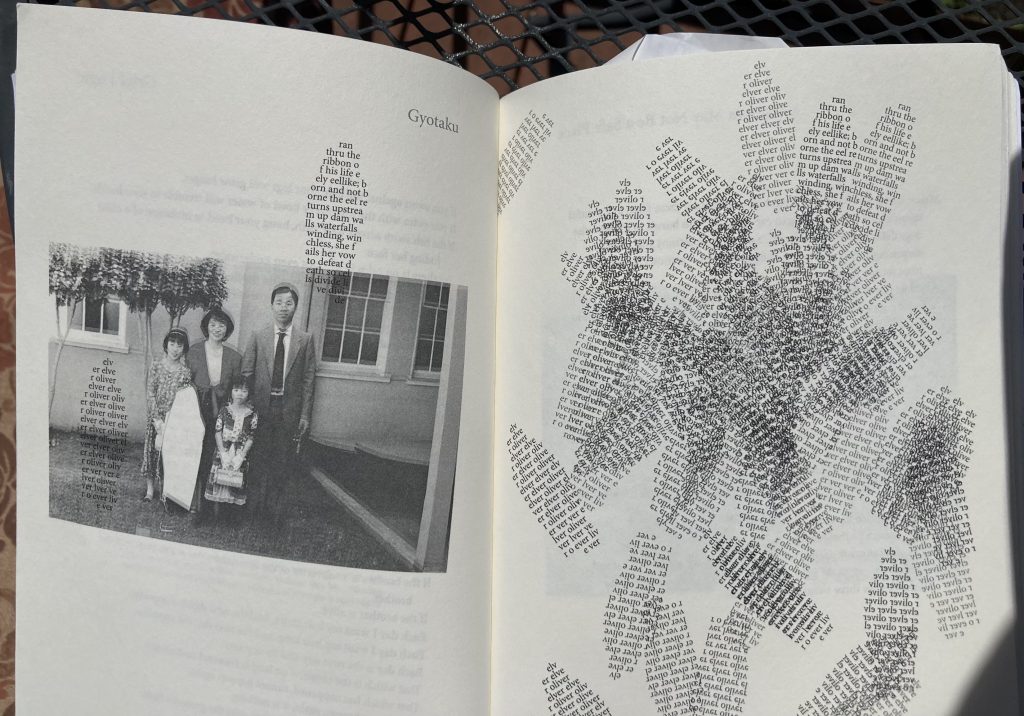4.15 miles
minnehaha falls and back
68 degrees
dew point: 59
Even though it was warm and the dew point was high, my run was good. Managed to bring my heart rate back down and keep it under 170 until I reached my favorite spot at the falls — 2.25 miles in. Excellent. I’m feeling stronger, mentally and physically.
10 Things
- a turkey in the middle of the road, honking? squawking? yelling? at the cars unwilling to stop and let him cross
- a hazy green above the gorge
- the sun hitting the light green leaves so intensely in the distance that I thought it was a bright yellow crossing sign instead of a tree
- the falls were rushing, all white foam framed by green trees
- a steady procession of cars on the road
- roots and rocks hidden in the shadows on the trail — I lightly twisted both ankles, one from a root, the other a rock
- the tree that feel in the creek sometime last year was gray — will they remove it?
- a line of a dozen or more cars backed up on the parkway, stuck at the stop sign
- a crowded trail heading north — bikers and walkers, a few runners, strollers
- the water fountains have been turned on again! I stopped for a drink and to wet down my hat
Listened to the hum of traffic as I ran south, my “Doin’ Time” playlist heading back north.
before the run
Thinking about LN’s poem — that I posted yesterday — about standing in the north woods with birch, which led me to think about becoming a tree, like in Katie Farris’ “What Would Root” and Linda Pastan’s “In The Orchard” — I shall come back as a tree.
I’m also thinking about Mary Oliver and “Can You Imagine” — surely you can’t imagine trees don’t dance from the roots up, wishing to travel a little, not cramped as much as wanting a better view, or sun, or just as avidly, more shade.
during the run
I don’t remember thinking about becoming a tree or rooting or stillness while I ran, but I remembered right after I finished and as I walked back home I recited “What Would Root” in my head. I need to practice the second half of the poem. Then I thought about the illusion of stillness and how nothing, not even rocks or trees, stand still. They’re sinking and shifting and swaying and responding to (being changed) by the world around them.
after the run
Still as not not moving but being stuck in a rut, doing the same thing again and again, as in, you’re still doing that?
Still as not needing more, content, at peace, satisfied, stilled desire or anxiety.
Nox Borealis/ Campbell McGrath
If Socrates drank his portion of hemlock willingly,
if the Appalachians have endured unending ages of erosion,
if the wind can learn to read our minds
and moonlight moonlight as a master pickpocket,
surely we can contend with contentment as our commission.
Deer in a stubble field, small birds dreaming
unimaginable dreams in hollow trees,
even the icicles, darling, even the icicles shame us
with their stoicism, their radiant resolve.
Listen to me now: think of something you love
but not too dearly, so the night will steal from us
only what we can afford to lose.
walk: 1 hour
winchell trail / edmund
77 degrees
Remembered to take Delia the dog for a walk before it got too hot. We walked to the Winchell trail than sauntered, me studying the leaves with my fuzzy vision and fingers, and Delia sniffing them with her snout. Warm in the sun, cool in the shadows.
10+ Things
- clumps of tallish grass growing through the mulch — a vibrant green
- even taller grasses growing among the flowers on the hill, creating a visual effect that was dizzying as my eyes tried to land on anything solid
- little bits of some sort of plant scattered along the top of the fence. It looked like it was growing there — a form of lichen? — but I couldn’t tell. It might have just fallen from a tree
- the pleasing, easily identifiable shape of the maple tree on the trees close to the trail
- sparkling, blue water
- blue water, blue sky, green trees
- the laugh of a woodpecker
- a yard with several bleeding heart bushes, all in bloom
- sprawled tree shadows on the grass
- the crotch of a tree — standing beside a tree that branched off into two equally sized limbs which looked like thighs to me. I imagined a person planted head first in the ground, which is what happens in “What Would Root”
- walking near Hiawatha Elementary, watching as a gym class “ran” around the block, studying the different approaches to “running” — a steady jog, sprint then stop then sprint, skipping, arms flailing and screaming while moving
As I walked with Delia, stopping at almost every tree or tuft of grass or clump of dirt, I thought about the differences between walking and running, this time in relation to a sense of self. Does one enable you to lose yourself or step outside of yourself more easily? I haven’t decided, but I think while walking you can be more aware of what you are doing, how you are attending to the world and noticing what is going on. While running, the attention is less deliberate; you’re too busy managing your effort to carefully study things. There was more to that thought but I lost in the time that it took me to get home.

